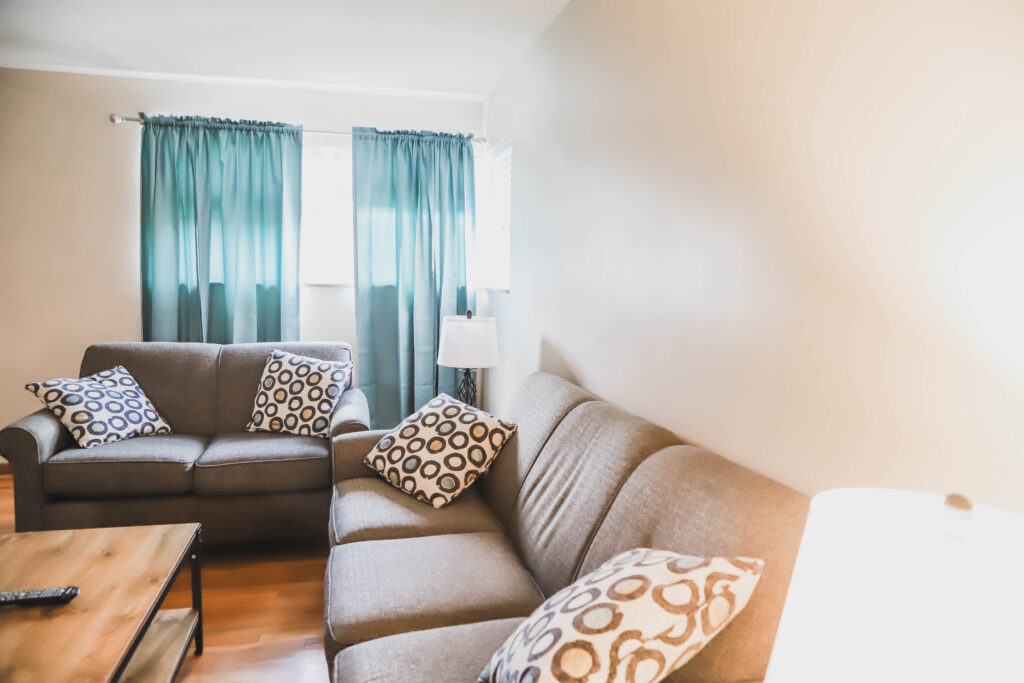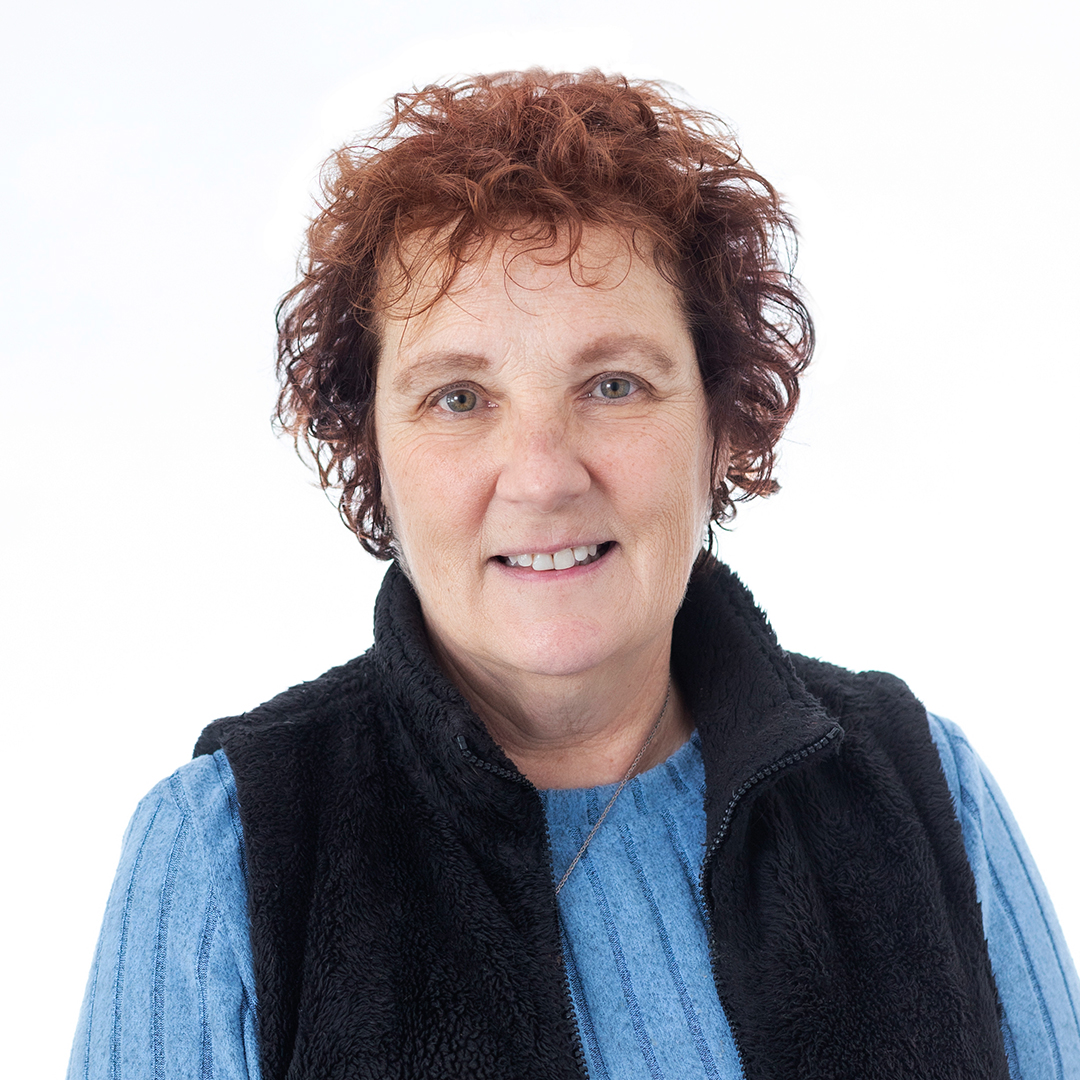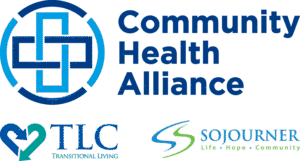Recovery Housing
Sojourner Recovery Services offers Recovery Housing as a vital step in building stability and structure in early recovery. Our recovery residences provide a safe, supportive, and substance-free environment for individuals transitioning from treatment into independent living. Rooted in accountability, community, and connection, our housing program empowers residents to continue their recovery journey with guidance and structure.
Our Recovery Housing promotes personal responsibility and recovery-focused living while helping individuals rebuild their lives in a healthy, supportive environment.

What it can look like?
Peer support and recovery coaching
Individuals are matched with trained peers who have lived experience in recovery. These coaches offer understanding, mentorship, and encouragement throughout the recovery journey—providing insight, reducing stigma, and strengthening motivation every step of the way.
Life skills training and goal setting
We help participants build practical tools for daily living—like time management, budgeting, communication, and conflict resolution. Coupled with personalized goal setting, this service empowers individuals to take clear, achievable steps toward long-term independence.
Case management and community linkage
Our case managers work one-on-one to connect individuals with essential services such as healthcare, transportation, legal aid, and public benefits. This tailored support helps remove barriers and ensures access to the full continuum of care and resources in the community.
Vocational and educational support
Whether returning to school, earning a certification, or preparing for the workforce, we offer help with resumes, job applications, interview skills, and GED enrollment. Our support is designed to build confidence and open doors to meaningful employment and personal growth.
Recovery-oriented groups and check-ins
Group sessions focus on building resilience, emotional regulation, self-advocacy, and mutual support. Regular check-ins provide accountability and structure, while fostering a sense of community and belonging among participants on similar paths.
Safe, sober, and affordable housing
Transitional housing options offer a supportive, substance-free environment where individuals can stabilize, heal, and rebuild. Residents live among peers who share similar recovery goals, with access to staff support and structured routines.
Access to outpatient and clinical services
Participants are connected to outpatient mental health and substance use treatment—including therapy, psychiatric care, and medication-assisted treatment. Services are integrated into the broader support model to promote holistic healing.
Regular drug and alcohol screening
Consistent and respectful screening helps reinforce accountability and support long-term recovery. Results are used to guide care decisions, celebrate progress, and address setbacks with compassion and clarity.
24/7 on-call support
Day or night, individuals in our programs have access to around-the-clock crisis support. Whether managing urges, navigating challenges, or needing someone to talk to, help is always just a phone call away.
Where is it offered?
Mental / Behavioral health services are available at multiple CHA locations, including:
- Commerce (OTP)
- TLC Base
- Franklin
- Rolling Hills
- Dayton Street
For a complete list of locations, please visit our Locations page.
Ready for the next step?
Our Providers Can Help With
Managing Mental Health Conditions
Licensed clinicians provide therapy, psychiatric care, and medication management to support emotional well-being alongside recovery.
Developing a Personalized Recovery Plan
Each participant works with providers to build a care plan tailored to their needs, goals, and strengths—focusing on progress, not perfection.
Navigating Triggers and Cravings
Trained staff help individuals understand patterns, avoid relapse, and practice coping strategies in real-life situations.
Addressing Trauma and Past Experiences
Many individuals in recovery have histories of trauma. Providers offer trauma-informed care to promote safety, healing, and trust.
Family Engagement and Communication
When appropriate, providers help facilitate family sessions, rebuild healthy relationships, and support reunification goals.
Health and Wellness Education
Participants learn about sleep, nutrition, stress, and physical health—reinforcing whole-person recovery and sustainable life change.
Crisis De-escalation and Safety Planning
When someone is in distress, trained staff respond with compassion and skill, helping prevent escalation and keeping everyone safe
Transition Planning and Aftercare
Providers help individuals prepare for life after recovery housing, ensuring strong next steps, continued connection, and reduced risk of return to use.
Connecting to Resources Beyond Housing
From transportation to childcare, ID recovery to legal aid—our team helps link individuals to the services that support independence and success.
Recovery Housing Providers

Christine Birhanzl, PRS / CMS
Director of Recovery Services
Sojourner Recovery Services

